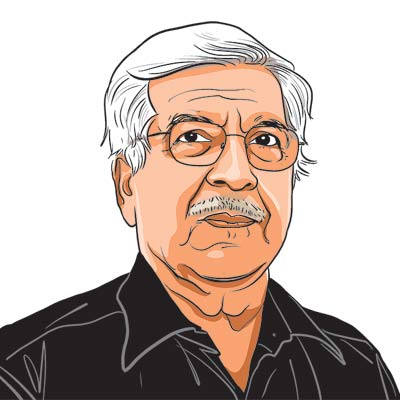Opinion Potatoes Fried and Otherwise
The McCain story is quite well known. I sometimes exchange cards with their Sahibs or with the Batas in CIGI meetings.
The McCain story is quite well known. I sometimes exchange cards with their Sahibs or with the Batas in CIGI meetings and others in faraway Waterloo,Toronto and so on,but those are not quite the places where potatoes are discussed even though in real life they are actually quite important.
But it is true that McCain–which makes potatoes in very lovely ways as fries,wedges (my favorites),mashed and in many other ways known to the global housewife–landed up in Mehsana.
It must be the Gujarati farmers’ commercial acumen which has sucked them in. Jeeru,Mirchu and Isabgol,all needed grading and simple first stage processing,were traded in a big way in nearby Unjha and sent for export. Unlike in the north,the kisan here is also a trader and knows that quality matters and money comes if you keep your promise.
The potato story in western India is not as well known as say the story of grapes,onions and dryland horticulture in Nashik and Nagar or illegal Bt cotton–and of course milk–but is equally interesting. The soil in north-central and north-western Gujarat can be conducive to potatoes,but water is scarce. Ground water levels are falling as aquifers are being flogged. This was the only area in Gujarat where electricity was rationed in six or eight hour cycles. But money and technology make the mare go.
McCain went into contract farming of potatoes with over a thousand farmers in Banskantha,Mehsana and Patan in north Gujarat. They are still going strong and reasonably as happy as a farmer ever can be or will ever admit.
Now,McCain has a strongly specified need of the humble potato. So,they introduced and spread their own varieties,with strange Latin names like Cenabag,Safori and Santana. They provided the potato seeds at Rs 14 a kilo. They also provide technical and agronomical guidance to the kisan,for free.
Now the tough part. The price is around Rs 100 to Rs 125 per 20 kgs. This ’20 kg business’,I suspect,goes back to the Kucha Maund of twenty seers. Farmers have to deliver the potatoes to the factory all by themselves and bear the cost of labour,grading,packing bags (Bardana) and lugging the stuff. The cost amounts to about eight to ten percent of the price they get and no farmer likes to shell out that much.
Size matters too. McCain doesn’t buy potatos if these are less than an inch and two thirds of an inch in size. But the kisan is not unhappy as he produces around forty tonnes a hectare.
Once McCain came in,others were bound to follow. That is the way Schumpeter dada said it happens. Innovators are followed by imitators. Potatoes are eaten by the ‘Global housewife’s family buying McCain wedges’ from a supermarket and then there are Aloo Ki Tikkis and Batata Bhajias and Batata Nu Saaag with Khichri,not to mention the now waning “jab tak rahe ga samose me aloo”. A young one is planning a shop called Books and Bhajias.
The non-McCain farmers in north Gujarat grow Badshah,Pokhraj and Manli potatoes. Yield and rates are almost like the McCain varieties but the Badshah is the king. The contract,as any economist will tell you,depends on the contract price and the market rate. The farmer will trade if he can. Last year he did. Will he future? Silence.


